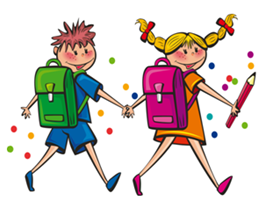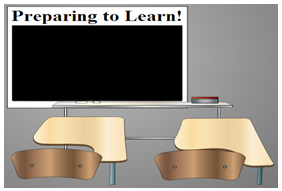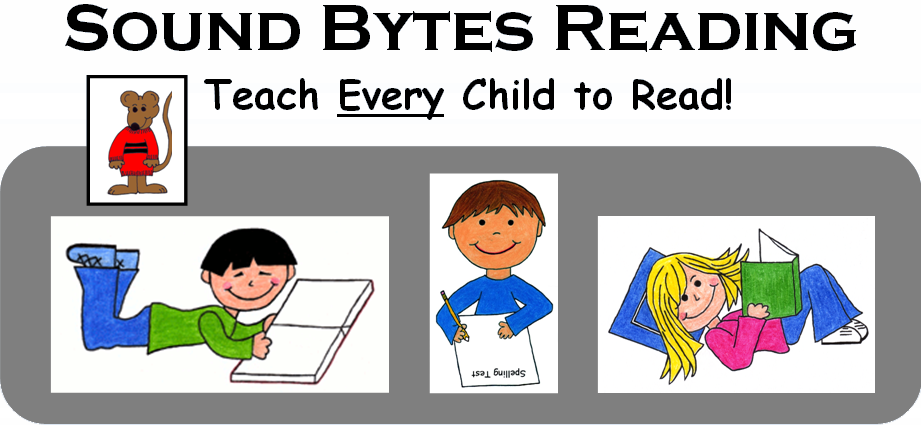Preparing Young Children to Learn

One of the things that teachers discover at the beginning of a new school year is that many children are not prepared to learn. What does that mean? What makes children ready to learn? What can parents do to help prepare their children to learn?
Whether your children will be attending a public school, an online school, a private school, or home school, they need to be prepared to learn. Being prepared to learn involves many things. It includes developing self control, the ability to pay attention, managing your time so you can get something done, and a willingness to co-operate with others and take turns. Educational leaders have labeled these things as “soft skills.”
How important is it to learn “soft skills”? In her recent article in Education Week, “‘Soft Skills’ Pushed as Part of College Readiness,” Caralee J. Adams writes that managing your time, getting along well with others, and dealing positively with setbacks is important for college readiness, and that many students are still lacking these skills.
These things are not considered “academic skills,” yet they will have a big impact on how children learn. Not only are these skills important for college students, they are also important for younger students. If children do not learn to pay attention when someone speaks to them and if they will not cooperate with others, they will not be able to follow instructions and they may find that they are getting into trouble frequently as a result.
Self control means that children will not be screaming or running around when they don’t get to do what they want, they will not be hitting other children when they have a disagreement, they will not be throwing things when they are angry, and they will not be defiant towards the teacher. Notice that I did not say that children will not have disagreements, or feel angry or upset about things. But children who are ready to learn will not be acting out in physically destructive ways, they will not be upsetting everyone around them, and they will not be preventing others from learning.

How do we teach these “soft skills” to younger children?
1. Set an example of self-control when things do not go well. Parents are the primary example of proper behavior for most young children. The most important thing parents can do is to model self control and resourcefulness. When our children want to talk to us, do we listen? Do we communicate in a positive, teaching, encouraging way or in a negative way? When we are angry do we show self-restraint? How do we react when things go wrong? Do we pick ourselves up and try again?
2. Teach children to behave appropriately. When children are young they try out many kinds of behavior. They are in the process of learning what works—and what does not work. If a child screams for candy in the grocery store, and the parent buys it so the child will stop screaming, the child has learned that screaming works really well. They will then continue to use screaming as a method to get what they want. Do not reward bad behavior.
3. Teach children to be respectful to others. Being respectful means listening when someone speaks to you, responding appropriately, and being in control of the words we use. Children learn how to do this by watching how we treat others, so our example is important. Teach them to stop what they are doing, give eye contact, and respond to requests. Ask them to practice this skill when you speak to them so that it will become an automatic behavior. If they have trouble remembering to do this, do a short practice run where you walk into the room, address your child by name, wait a moment for your child to give you eye contact, and then speak. Ask your child to respond or acknowledge you by saying “OK,” or whatever response is appropriate. Practice this briefly (at least five times within five minutes or less) so that your child gets the idea of how you want him to respond to you.
Your child’s future teachers will be grateful that your child knows how to be respectful and responsive and is able to exercise self control. You will be grateful as well because your child will be more respectful towards you. If your child already has some bad habits, you may have to work at this for a while. The time you spend is well worth it. Children who are able to control themselves will be able to learn. This is good teaching—you are giving your child the opportunity to learn valuable social skills that will be useful throughout their entire lives.
